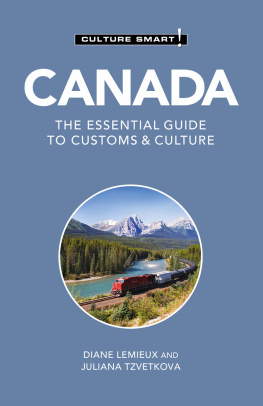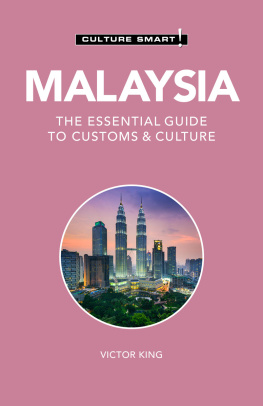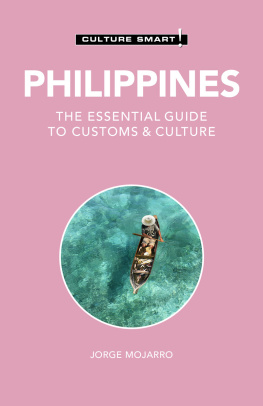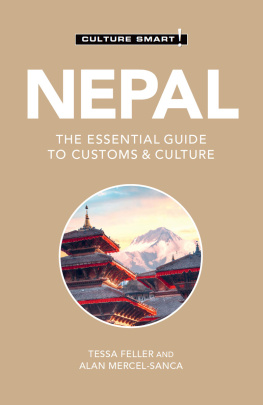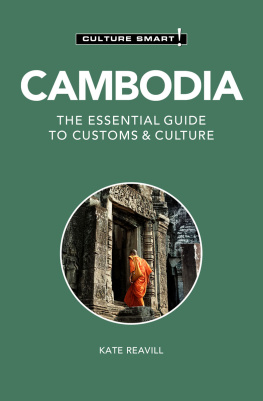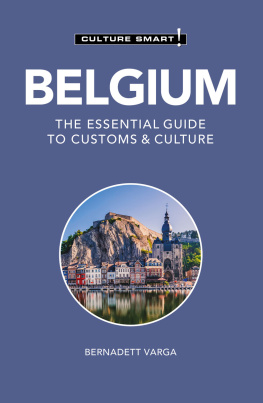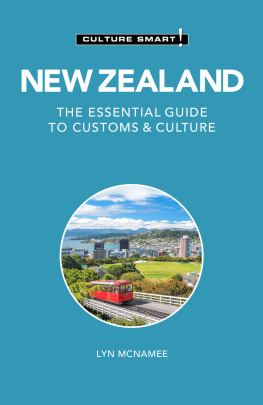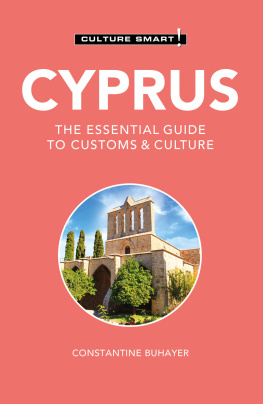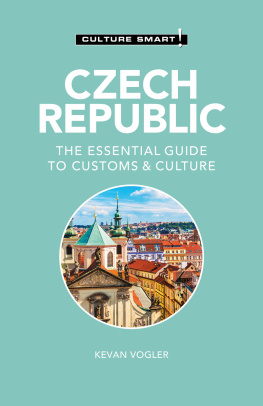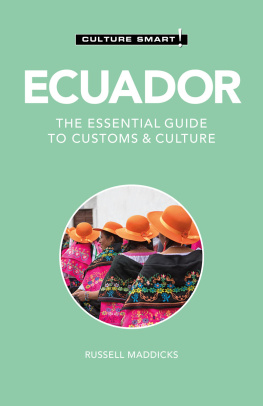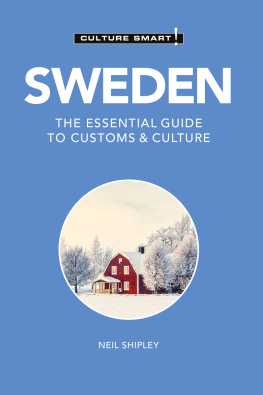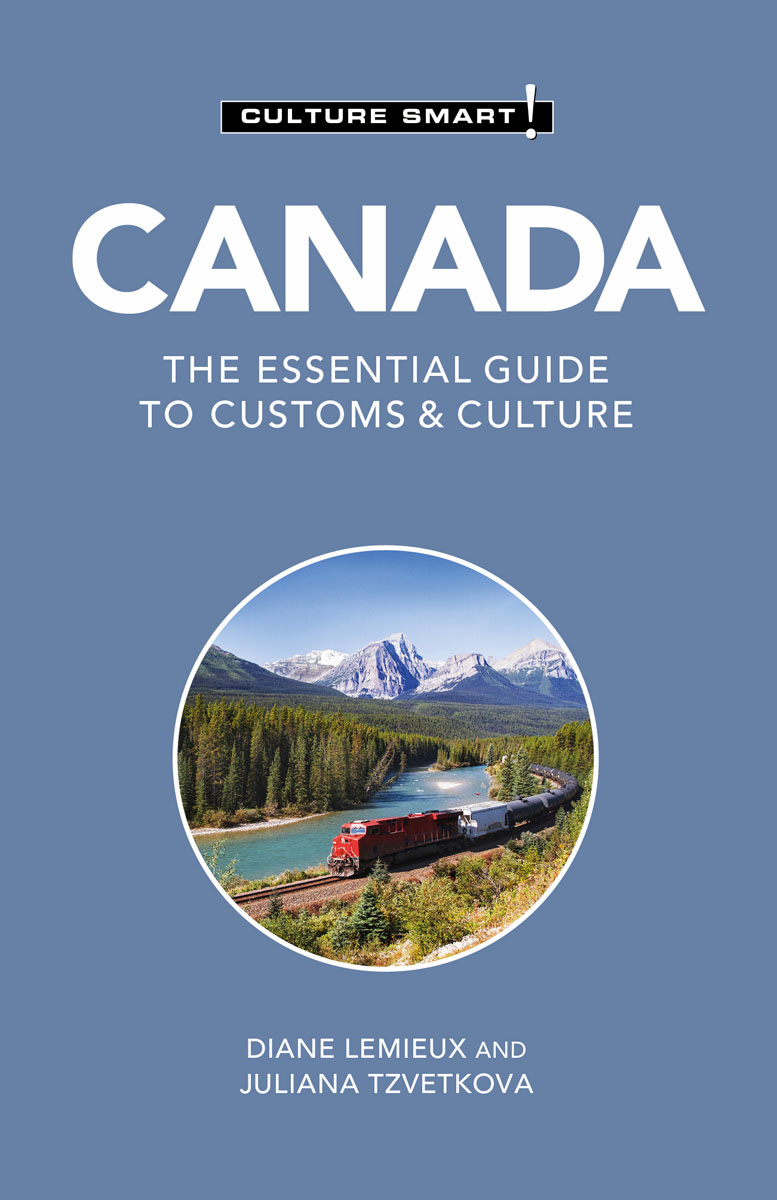
The real voyage of discovery consists not in seeking new landscapes, but in having new eyes.
Adapted from Marcel Proust, Remembrance of Things Past.
ISBN 978 1 78702 324 6
British Library Cataloguing in Publication Data
A CIP catalogue entry for this book is available from the British Library
First published in Great Britain
by Kuperard, an imprint of Bravo Ltd
59 Hutton Grove, London N12 8DS
Tel: +44 (0) 20 8446 2440
www.culturesmart.co.uk
Inquiries:
Design Bobby Birchall
Printed in Turkey
The Culture Smart! series is continuing to expand.
All Culture Smart! guides are available as e-books, and many as audio books. For further information and latest titles visit www.culturesmart.co.uk
ABOUT THE AUTHORS
DIANE LEMIEUX was born in Quebec into a diplomatic family, and first moved abroad at the age of three. Her journey continued through eleven countries on five continents, during which she acquired four languages, two passports, and several cultural identities. She graduated with a B.A. in Communication from the University of Ottawa, an M.A. in Development Studies from Leeds University, a post-masters diploma in International Relations from the University of Amsterdam, and has a Journalism Diploma from Bath University. She started her career in international development, but decided more than twenty years ago to pursue her passion: writing. She is the author of four books, including The Mobile Life: A New Approach to Moving Anywhere and Culture Smart! Nigeria.
JULIANA TZVETKOVA is an academic and intercultural intelligence trainer. Born and educated in Bulgaria, she has an M.A. from Sofia Universitys Faculty of Classic and Modern Philology. After graduation she did translating, interpreting, and research, and worked for Bulgarian National Television. In 1998 Juliana moved with her family to Canada where she joined the Communications Faculty of Centennial College. She worked for Centennial around the globe for more than twenty years, and began her intercultural training career in Dubai. Today she combines her intercultural and educational work with writing. She has contributed to encyclopedias and is the author of Pop Culture in Europe and Culture Smart! Bulgaria.
CONTENTS
MAP OF CANADA

INTRODUCTION
Beyond its borders, Canada has long held a positive reputation based on its international peacekeeping activities, its stunning natural environment, and the modest and understated nature of its people. The idea that the French-speaking part would want to split from such a wonderful place is confounding to most outsiders. Beyond that, people assume that Canadians are culturally similar to, though perhaps more humble than, their American neighbors to the south.
But Canada is a far more complex society than the worlds news media might lead you to believe. In the past decades, Canada has become distinctly multicultural: its small population is spread across a vast territory, which affects how Canadians communicate with each other. Politically and economically the country is very decentralized, a fact that affects the way business is done: Canadians trade far more with the rest of the world than they do interprovincially.
Canada is one of the worlds wealthiest nations, with one of the largest economies and a quality of life among the best in the world. Though Canadians remain proud of their nationality, events of the past decade have challenged their sense of national identity as well as their reputation abroad: climate change, the Covid-19 pandemic, the treatment of its indigenous population, its handling of the anti-vax freedom convoy, and the dramatic natural disasters of 2021 are events that are shaping Canadian society in the twenty-first century.
Culture Smart! Canada gives a broad overview of the geography, history, and politics of the country, and describes the Canadians themselves, their values, attitudes, and the routine of their daily lives. It looks at how Canadians use their spare time, and how you can make friends with them. There is a chapter on traveling within the country, and another on business for those who need to know what to expect in the corporate worldfor instance, the specific rules of etiquette at business meetings, and how Canadians negotiate deals.
A book of this size cannot hope to do full justice to the rich cultural variety that exists within the country, yet it aims to guide you through the complexities of the Canadian psyche and so prepare you for the reactions, emotions, and events that you are likely to experience during your visit. Canadians are open, friendly, and relaxed hosts, who will make your stay worthwhile, and will welcome you even more if you can demonstrate some depth of knowledge of their culture.
KEY FACTS
Official Name | Canada |
Capital City | Ottawa | In Ontario |
Main Cities and Towns | Victoria, Vancouver, Calgary, Edmonton, Regina, Winnipeg, Toronto, Quebec City, Montreal, Fredericton, Halifax, Charlottetown, St. Johns, White Horse, Yellowknife, Iqualuit |
Area | 3,855,106 sq. miles (9,984,670 sq. km) | Includes 10 provinces and 3 territories |
Terrain | Varies widely across the country. Includes tundra, flat plains, mountains, vast forests, lakes, and rivers |
Climate | Continental climate: cold winters and warm summers | Regional variations include cold northern regions, a wet and mild west coast, and a snowy east coast. |
Currency | The Canadian Dollar | CAD, or Can$ |
Population | 38.7 million (approx.) |
Ethnic Makeup | About 73% are of European descent. About 13.6% are of French descent; 4.9% Indigenous. | The rest come from all other areas of the world. Approx. 21.5% of the population is foreign born. |
National Languages | The official languages are English and French; 18% speak at least 2 languages. | About 75% are native English speakers; 21.4% are native French speakers. 200 languages are reported as home or native languages. |
Religion | Around 63.2% are Christian; 26.3% claim no religious affiliation. | The remaining 10.5% are Buddhist, Hindu, Jewish, Muslim, Sikh, or other. |
Government | Constitutional monarchy, still linked to the British Crown | Bicameral parliament at both federal and provincial levels. The federal executive is headed by the prime minister. |
Media | National public network providers CBC, SRC, CTV, and Global/Can West. Several commercial networks, regional and local networks. Cable and satellite TV broadly available | National papers: The Globe and Mail, National Post (English); La Presse |

